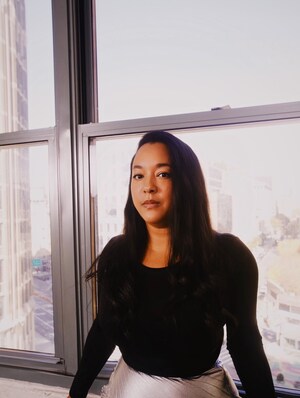While consumers' desire for luxury is at an all-time high, their purchasing drivers are harder to decipher, making growth more complex to achieve.
PARIS, March 27, 2024 /PRNewswire/ - Today, BETC Havas unveiled the latest edition of its Prosumer Report, "The Luxury Issue," discussing the economic changes that have affected the luxury goods market and the steps marketers can take to continue its growth. The global luxury market will continue to grow, propelled in part by indulgence-minded millennials and Gen Zs. The Global luxury brands, however, will need to adapt to keep up with these seismic shifts.
BETC Havas conducts its global proprietary Prosumer studies several times per year, polling more than 13,000 people across 33 markets, including Brazil, China, France, India, the United Kingdom, and the United States. As today's leading consumers and market drivers, Prosumers influence the brand choices and consumption behaviors of others.
Specifically, "The Luxury Issue" surveyed 1,650 aspirational luxury consumers who have spent an average of $2,000 a year in luxury items in nine priority markets: China, France, Germany, Japan, Saudi Arabia, South Korea, the United Arab Emirates, the United Kingdom, and the United States. Key findings highlight the effects of the post-pandemic era when luxury goods must compete once more with restaurants and travel for discretionary spending priority.
- 100% of Gen Z Prosumers asserted that luxury items are essential, a stark contrast to the mere 50% acknowledgement from their boomer counterparts.
- 80% of Prosumers agreed that a luxury brand's timeless appeal is a key determinant of its worth.
- 60% of Prosumers defined luxury as a delicate balance between continuous creativity and timeless allure.
"The biggest challenge for brands is growing and enriching their cultural auras without stretching too thin," said Clément Boisseau and Sébastien Houdusse, Global Chief Strategy Officers, BETC Havas. "There's a fine line between inclusivity and oversaturation. Our job as marketers is to ensure our clients are the brands that claim that hefty slice of cake, and that means helping them navigate shifting consumer trends and preferences."
"The Luxury Issue" focuses on four pathways for marketers' success.
- ALL HAIL THE PRODUCT—AND WHAT IT REPRESENTS. 44% of Prosumers attributed motivations for purchasing luxury items to the product itself—the allure of branding, strategic positioning, and celebrity associations all emerge as pivotal factors in a product's ability to stand out.
- STEPPING OUTSIDE THE GILDED CAGE: A DOUBLE-EDGED (DIAMOND-ENCRUSTED) SWORD. 70% of Prosumers held the luxury industry accountable for its impact on the global climate, but only 50% believed luxury brands should take a stance on social issues even if it means losing customers.
- NEW PATHS OF ACCESS. The secondhand market for luxury goods is booming—not only because it represents sometimes the only way to access rare items, but because secondhand items drive more desirability. 50% of Prosumers declared they prefer secondhand items because they have more stories and heritage.
- PUSHING A NEW FRONTIER. There is an enduring link between luxury and the worlds of culture and the arts, with luxury brands expected to serve as cultural patrons financially supporting institutions such as theaters, concert halls, and art museums.
Boisseau and Houdusse added: "The desirability of luxury remains robust and will continue to grow—and yet, its drivers are changing. The new luxury audience craves the age-old elements of timelessness, craft fetishism, and brand heritage, but delivered in a digital-savvy way and via up-to-the-moment collaborations."
The report comes just a month after the launch of Maison BETC, a strategic and creative agency based in New York and dedicated to luxury, fashion, beauty, and lifestyle brands in the United States. Bringing its expertise from Paris, the shop carries a reputation with iconic brands like LVMH, Lacoste, and Boucheron.
To learn more, follow Havas on Instagram and LinkedIn.
Founded in 1835 in Paris, Havas is one of the world's largest global communications networks, with more than 22,000 people in over 100 countries sharing one single mission: to make a meaningful difference to brands, businesses, and people. Havas has developed a fully integrated model through its 70+ Havas Villages around the world, covering all communication activities. The teams of the three business units, Havas Creative Network, Havas Media Network, and Havas Health & You, work together with agility and in perfect synergy to offer tailor-made, innovative solutions to clients who support them in their positive transformation. Havas is committed to building a diverse culture where everybody feels they belong and can be themselves and thrive. Havas integrated into Vivendi, a global leader in media, entertainment, and communications, in December 2017.
SOURCE Havas Worldwide, LLC

WANT YOUR COMPANY'S NEWS FEATURED ON PRNEWSWIRE.COM?
Newsrooms &
Influencers
Digital Media
Outlets
Journalists
Opted In





Share this article